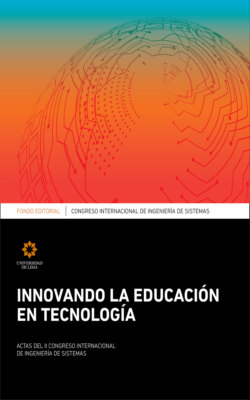Читать книгу Innovando la educación en la tecnología - Группа авторов - Страница 28
REFERENCES
ОглавлениеAlario-Hoyos, C., Pérez-Sanagustín, M., Delgado-Kloos, C., Parada G., H. A., & Muñoz-Organero, M. (2014). Delving into participants’ profiles and use of social tools in MOOCs. IEEE Transactions on Learning Technologies, 7(3), 260-266.
Alario-Hoyos, C., Muñoz-Merino, P. J., Pérez-Sanagustín, M., Delgado Kloos, C., & Parada G., H. A. (2016). Who are the top contributors in a MOOC? Relating participants’ performance and contributions. Journal of Computer Assisted Learning, 32(3), 232-243.
Alario-Hoyos, C., Estévez-Ayres, I., Pérez-Sanagustín, M., Delgado Kloos, C., & Fernández-Panadero, C. (2017). Understanding learners’ motivation and learning strategies in MOOCs. Intern. Review of Research in Open and Distributed Learning, 18(3), 119-137.
Alario-Hoyos, C., Estévez-Ayres, I., Delgado Kloos, C., Villena-Román, J., Muñoz-Merino, P. J., & Llorente-Pérez, E. (2019). Redesigning a freshman engineering course to promote active learning by flipping the classroom through the reuse of MOOCs. International Journal of Engineering Education, 35(1), 385-396.
Alonso-Mencía, M. E., Alario-Hoyos, C., Maldonado-Mahauad, J., Estévez-Ayres, I., Pérez-Sanagustín, M., & Delgado Kloos, C. (2019). Self-regulated learning in MOOCs: lessons learned from a literature review. Educational Review (published online), 1-27.
Baepler, P., Walker, J. D., & Driessen, M. (2014). It’s not about seat time: Blending, flipping, and efficiency in active learning classrooms. Computers & Education, 78, 227-236.
Delgado Kloos, C., Catalán-Aguirre, C., Muñoz-Merino, P. J., Alario-Hoyos, C. (2018). Design of a Conversational Agent as an Educational Tool, In Learning with MOOCs 2018 (LWMOOCS V) (pp. 27-30). IEEE.
Dringus, L. P. (2012). Learning analytics considered harmful. Journal of Asynchronous Learning Networks, 16(3), 87-100.
Ferguson, R. (2012). Learning analytics: drivers, developments and challenges. International Journal of Technology Enhanced Learning, 4(5/6), 304-317.
Khalil, M., Taraghi, B., & Ebner, M. (2016). Engaging Learning Analytics in MOOCs: the good, the bad, and the ugly. In Proceedings of the International Conference on Education and New Developments (END) (pp. 3-7).
Moreno-Marcos, P. M., Alario-Hoyos, C., Muñoz-Merino, P. J., & Delgado Kloos, C. (2018). Prediction in MOOCs: A review and future research directions. IEEE Transactions on Learning Technologies (published online), 1-19.
Moreno-Marcos, P. M., Alario-Hoyos, C., Muñoz-Merino, P. J., Estévez-Ayres, I., & Delgado Kloos, C. (2018). Sentiment Analysis in MOOCs: A case study. In 2018 IEEE Global Engineering Education Conference (EDUCON) (pp. 1489-1496). IEEE.
Pérez-Sanagustín, M., Hilliger, I., Alario-Hoyos, C., Delgado Kloos, C., & Rayyan, S. (2017). H-MOOC framework: reusing MOOCs for hybrid education. Journal of Computing in Higher Education, 29(1), 47-64.
Ruipérez-Valiente, J. A., Muñoz-Merino, P. J., Leony, D., & Delgado Kloos, C. (2015). ALASKA: A learning analytics extension for better understanding the learning process in the Khan Academy platform. Computers in Human Behavior, 47, 139-148.
Slade, S., & Tait, A. (2019). Global guidelines: Ethics in learning analytics. Oslo: International Council for Open and Distance Education (ICDE).
Zimmerman, B. J. (2013). Theories of self-regulated learning and academic achievement: An overview and analysis. In Self-regulated learning and academic achievement (pp. 10-45). Routledge.
